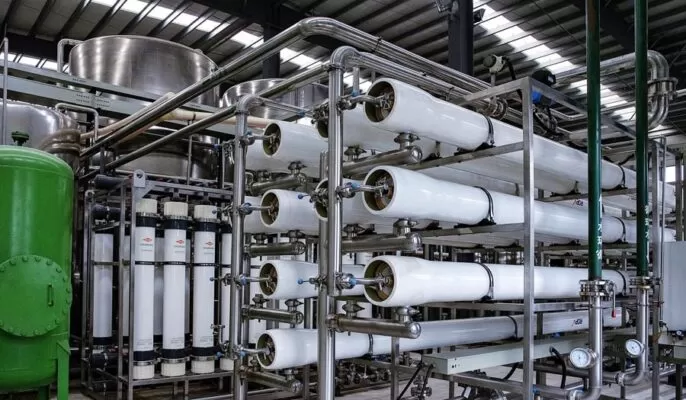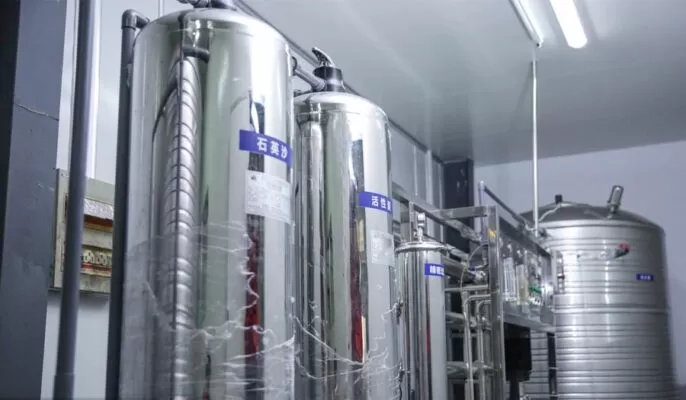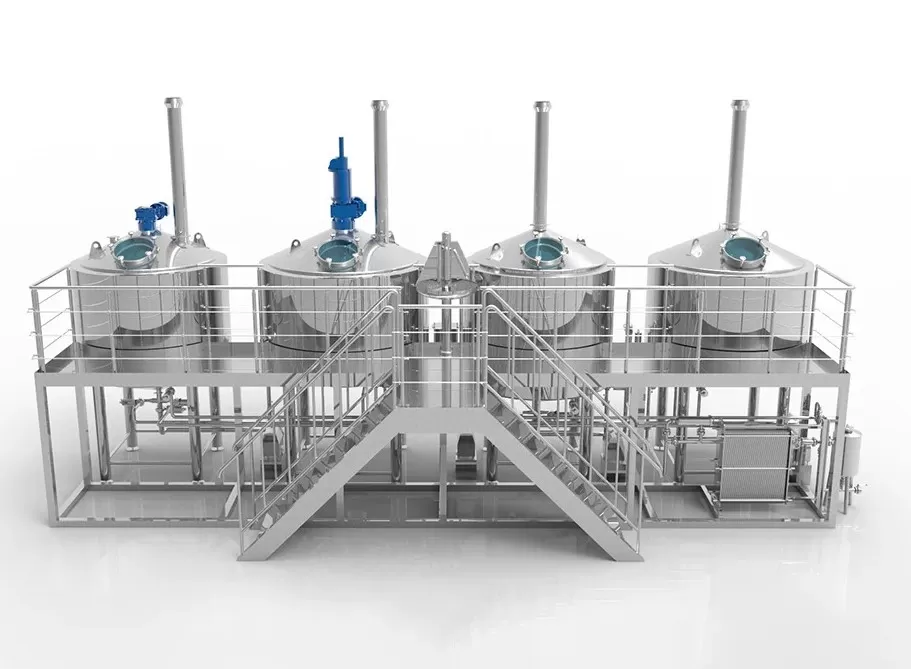Beer is made from four ingredients: malt, hops, yeast and water. While we all pay great attention to malt selection, hop characteristics, and yeast selection, water is often not considered. Since beer is 90% water, it is a key ingredient in brewing. Also to most of the ingredients in a beer glass, the unique chemistry of water has a huge impact on the brewing process and the flavor of the resulting beverage. Historical centers of brewing culture such as Dublin, Munich, and Pilsner owe their prominence to the fact that brewers learned how to exploit local water sources before they understood the chemistry behind stouts, porters, and pilsners.
What is reverse osmosis water filtration?
Reverse osmosis (RO) is a simple water filtration process. Water flows through the filter and then through a semipermeable membrane, which removes dissolved solids and sediment from the water. This process removes most ions and dissolved solids, including iron, fluoride, chlorine, and reduces bicarbonate. The result is water that is very low in minerals and alkalinity and in most cases is almost the same quality as distilled water. Home reverse osmosis systems are designed to use the municipality’s incoming water pressure to force water through a semipermeable membrane. A series of other filters further reduce the amount of other uninteresting matter in the source water.

The water is forced through membranes, sediment filters, carbon filters, and other stages to remove various types of impurities. Some wastewater is produced to flush away these impurities. What’s left is clean water, which is then forced into a holding tank.
Why choose reverse osmosis water?
Why use RO water in the first place? The advantage of mineral-free soft water is that it provides a clean state to customize your water profile to best suit your beer style. Purified water gives winemakers more flexibility and freedom to customize every element. While most of us can buy reverse osmosis/distilled water, reverse osmosis systems provide convenience for brewing.
Why is it not recommended to brew with tap water?
A lot of water in many big cities contains chlorine and is also high in sodium, which is bad news for brewing beer. If the chlorine is filtered out, it could be good water for brewing hops or baking beer. Another problem with city tap water is that the mineral content of different water sources varies, so brewing water amounts to a gamble every time. Thus, we recommend that you buy an RO system and use water filtered by the RO system for brewing.
What additives need to be added to RO pure water?
Some beer types are suitable for using RO water , such as Czech beer. Almost any beer can be brewed with 100% RO water, but some types of beer must some simple additions for optimal flavor.
- Use gypsum (CaSO4 or calcium sulfate) in water to absorb calcium and sulfate. It is a white powder.
- Calcium chloride (Kimchi Crisp or CaCl2) is used to add calcium and chloride. It is a white powder that is hygroscopic; that is, it absorbs moisture from the air, so it should be kept in small amounts in an airtight container.
- Epsom salt (MgSO4 or magnesium sulfate) is used to provide magnesium and sulfate.
- Table salt (NaCl2 or sodium chloride) brings sodium and chloride into the water. Non-iodized salt for this purpose is available at the grocery store.
- In the past, chalk (CaCO3 or calcium carbonate) was used as a method of raising mash pH where necessary. But, it does not dissolve well without more measures and should be avoided by most brewers.
- In the rare cases where you need to raise the mash pH, baking soda (NaHCO3) can be used.
What is the role of additives?
RO water removes a large number of minerals and compounds, including beer-damaging chlorine and chloramines. If you’re looking for a beer with a complex or specific flavor, you may want to add more minerals later. Now that you know what salts you need to add, let’s look at what they do and why you should add them to your brewing water.

How to increase the levels of these minerals?
To achieve the desired mineral content, you can add brewing salt. Most brewing salts can be purchased online and sometimes in stores. These salts include calcium chloride, chalk, sodium chloride, baking soda, Epsom salt, and gypsum. Different brewing salts have different mineral properties. Calcium chloride increases calcium ions and chloride, and Epsom salt increases magnesium and sulfate levels. Gypsum increases calcium and sulfate levels, while sodium chloride increases sodium and chloride levels. Chalk and baking soda both raise pH levels. In rare cases, if this is a necessary step, it is recommended to use baking soda, since the chalk will not dissolve without other more reagents. If necessary, lactic acid or phosphoric acid can be used to lower the pH.
How to use reverse osmosis in brewing?
RO water is a prudent choice for breweries that want more control over the beer they produce. Breweries need to have their water analyzed to ensure they are still adding the correct amount of water. Having a reverse osmosis machine frees brewers from the constraints of geography and local water chemistry.




